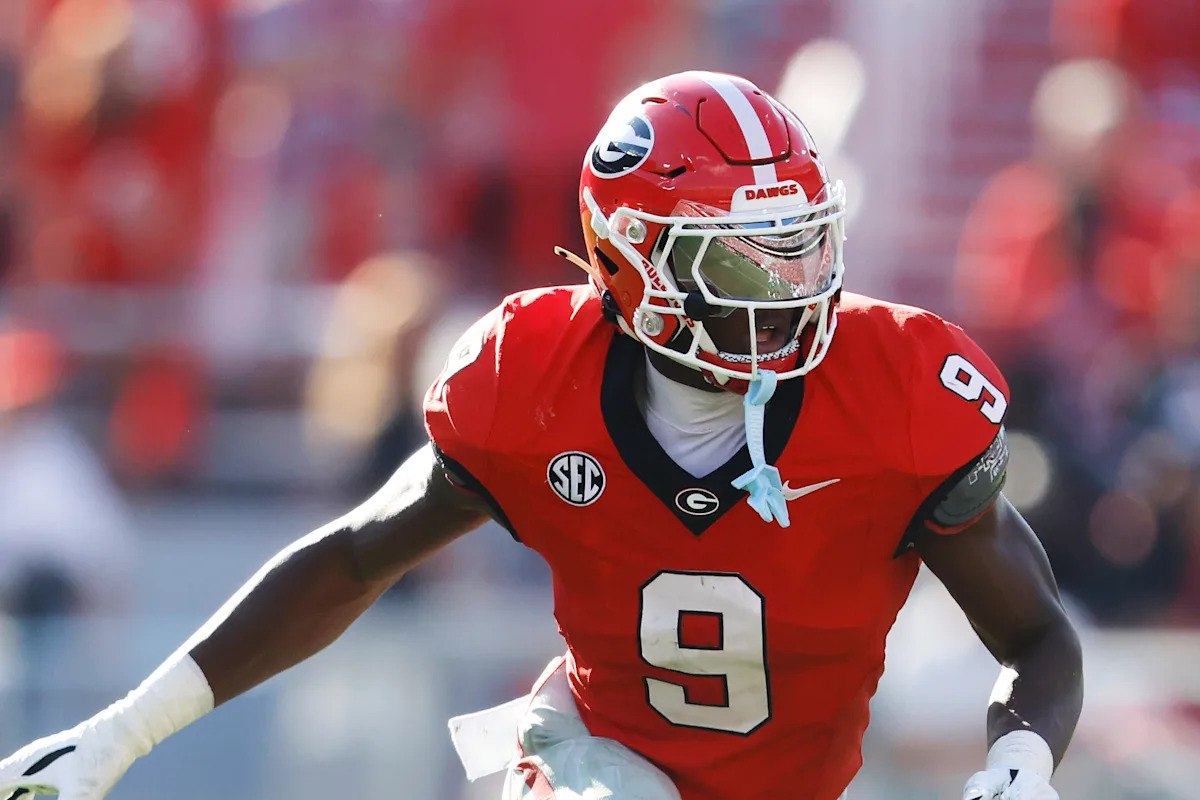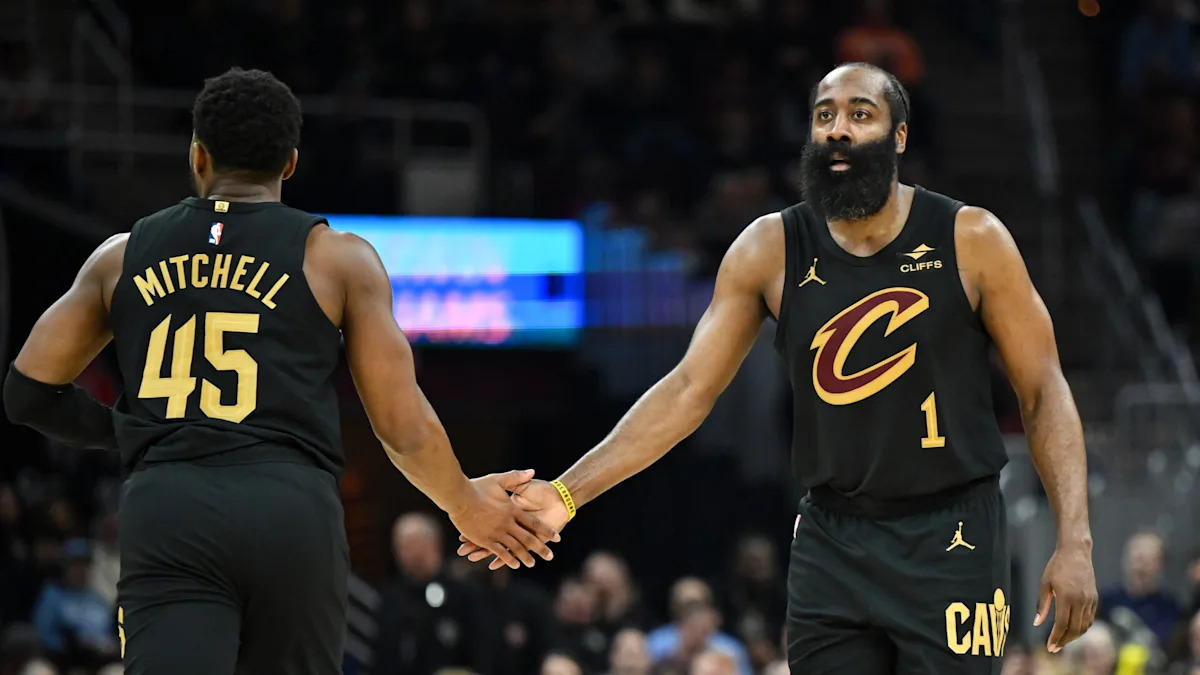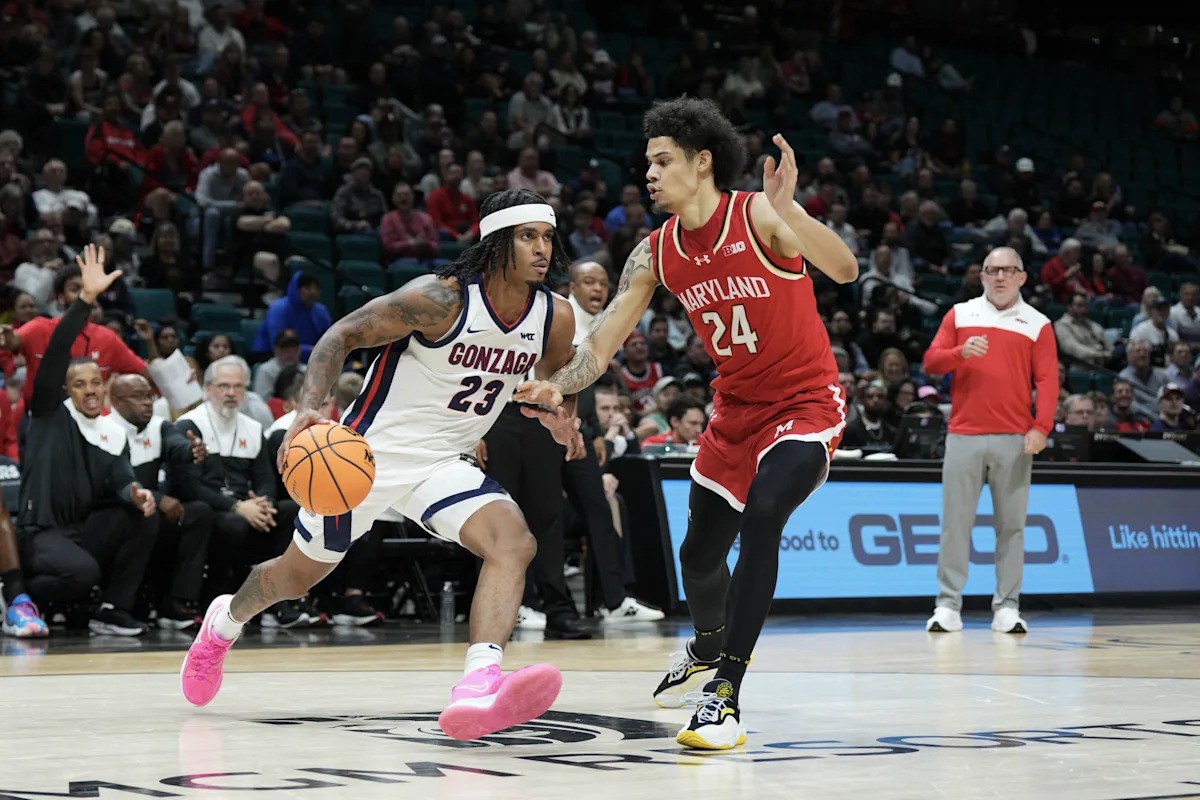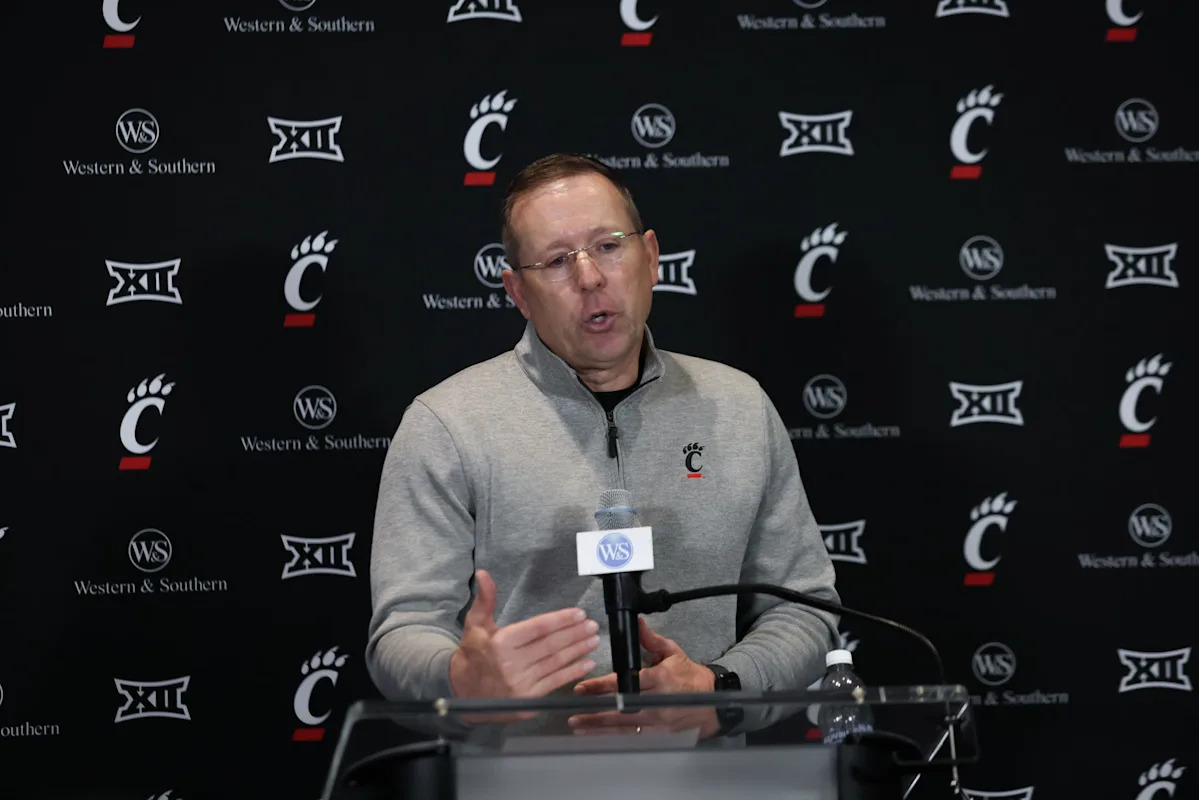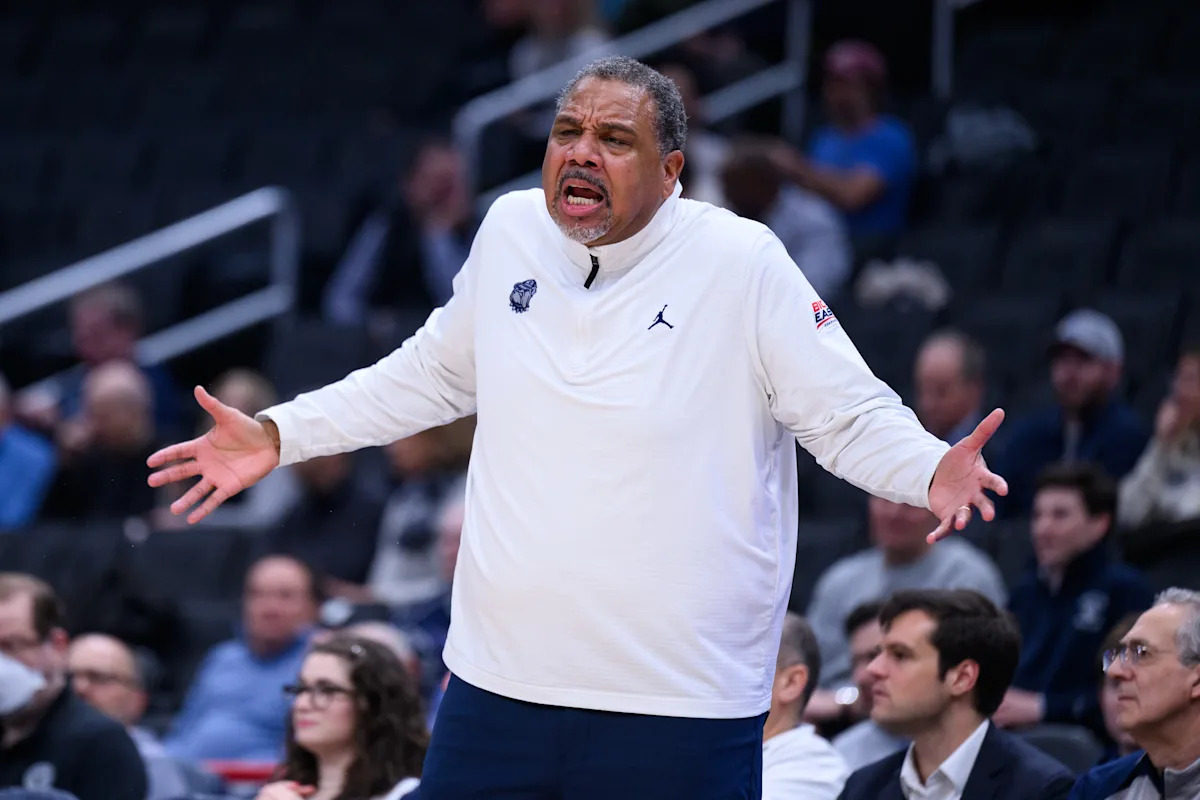MIAMI — Norman Powell looks happy. Just-made-the-varsity-team happy. He breaks into a big smile, sitting on the sideline after a recent practice.
There’s a refreshing excitement about him — an honest energy to earn his keep — as if he were a rookie and not an 11-year NBA veteran. Some days he can’t believe he’s actually here, on this floor, in his first season playing for the Miami Heat.
He’s dreamed of playing for Miami since he was a child. And he almost feels like one again when he walks into the Heat locker room each day, knowing he has the same locker as Dwyane Wade, his childhood idol. “Crazy,” Powell says, still lost for words. When he was in middle school, he remembers being glued to his TV in 2006, watching Wade put Miami on his back as he and Shaquille O’Neal helped the team claw back from a 2-0 deficit to defeat the Dallas Mavericks for the NBA championship.
Powell recites play after play from that run as center Bam Adebayo comes near, waving at Powell, pretending to interrupt. Powell turns and spots him, laughing before motioning for him to leave. “He’s just trying to be nosy,” Powell says of Adebayo. It’s little moments like this when Powell feels grateful to be here, with this team. There isn’t any ego, any sense of hierarchy, Powell says. Just a group of hard-nosed guys genuinely encouraging each other.
“They’ve embraced me from Day 1,” Powell says.
He’s reminded of their collective purpose as he walks through the halls of Kaseya Arena and sees photos of the Heat legends of the past: Alonzo Mourning and the big three of Wade, LeBron James and Chris Bosh. But unlike those superstars, who were tabbed at an early age to take over the league, Powell’s ascent to likely NBA All-Star is practically unheard of for his age: a 32-year-old with more seasons behind him than ahead. The late-blooming star is having a career year, leading the team in scoring after spending most of his career as a defensive specialist next to big-time guys like Kawhi Leonard, DeMar DeRozan and Damian Lillard before last year’s offensive breakout with the LA Clippers.
Now, thanks to an unexpected offseason trade, it’s Powell’s turn to be the offensive juggernaut. The Man.
Funny enough, Man — from NorMan — is actually his nickname. He couldn’t even have his own moniker on the Clippers; Terance Mann was also called “Mann,” and oftentimes, when someone hollered “Mann,” it would be unclear which one should turn. These days, there is no confusion about who is Miami’s “Man.”
Powell’s mother, Sharon, noticed this joy right away when her son first arrived in Miami. “He just seemed like he was at home,” Sharon says. “Usually, it takes a minute to get acclimated to a new area, a new team, everything. But he just seemed to fit right there.”
But underneath Powell’s smile is sadness, a sense of helplessness as he watches another home — his ancestral home, Jamaica — endure unfathomable tragedy in the aftermath of Hurricane Melissa, a Category 5 storm that began Oct. 28.
He takes a deep breath, struggling to allow himself to hold any joy alongside the island’s suffering. When the hurricane first made landfall, Powell, whose father is from the capital of Kingston, was horrified at the videos and photos that began flashing across his screen.
Powell began to frantically text everyone he knew in Jamaica. Family and friends. Teammates and coaches from the Jamaican national team.
“Are you OK? Is your family safe?”
One teammate couldn’t get in touch with his mother for a terrifying stretch of time, given that power was disconnected over much of the island. Another sent video of floodwater steadily seeping into his home. It was jarring for Powell, seeing how quickly the water rose.
“They can’t leave,” Powell says. “It’s definitely a gut-wrenching feeling. Seeing that, knowing you know people who are struggling, and you just want to help …”
The destruction across the island has been widespread, especially in the western part of the country. Thousands have been left homeless, and a million people were affected by the storm. Forty-five have been killed. Powell has been donating to rebuilding efforts, as well as sending clothing and other essential needs such as food and toiletries to locals, just to “try to help provide some relief and some stability for all the families that were affected,” he says.
Over the last couple of years, Powell has grown closer to the country and has made several trips. Since committing to the national team in April, Powell has been steadily trying to help build Jamaican basketball culture. Growing up in San Diego, he didn’t quite understand his connection to the island then.
“My dad wasn’t really in my life,” he says. “I didn’t really know much about my family’s background on that side.”
As he grew older, his curiosity deepened. He wanted to know more about his father. Where he was from. Who he came from.
Powell began a journey of discovery, of reclamation.
“Getting back in touch with my roots,” Powell says. That journey is ongoing. He pauses, gathering himself. Finding those roots, he says, have “filled a hole in my life.”
So has joining the Heat this season. As Powell reflects on his parallel journeys — to Jamaica, to Miami, on this November morning — he feels as if he is meant to be exactly where he is.
“Everything happens for a reason,” he says.
It may not be a coincidence that he was traded from the Clippers to the Heat in July. Of all places he could have been traded to, he is thankful that Miami is roughly a two-hour plane ride from Jamaica so he can continue to help with rebuilding efforts.
Joy and suffering, he is learning, do not cancel each other out; they fuel each other. They give him more empathy for others. Remind him of his deeper purpose. “Everything,” Powell says, “feels like it’s falling into place.”
But he remembers the years where he was searching, trying to figure out his place. His identity.
Growing up, Powell had many questions about Jamaica. What was his father’s upbringing like? Did he have family in Jamaica? What did the country mean to his family, given that his sister’s middle name is Jamaica?
“That was just something [Norman] always talked about, and wanted to be a part of,” Sharon says.
When his dad did visit, he says, they’d have oxtail or jerk chicken, traditional Jamaican dishes. But Powell often felt there was much he wanted to learn about the island. He felt as if he had more questions than answers, unable to find the details of his lineage. And most of the time, his father seemed to not want to talk about it. “He was very weird about opening up about it,” Powell says.
Unable to understand why – then or now – Powell was nonetheless determined to dive deeper into the culture. That feeling followed him as he grew older, starring for UCLA, where he was a four-year player before being selected deep in the second round in 2015, and throughout his NBA career, playing for the Toronto Raptors, Portland Trail Blazers and Clippers.
What was a dormant yet lingering curiosity in the back of his mind in adulthood soon flashed to the forefront when, a few years ago, a woman reached out and said she was his aunt. “I screen-shotted it and sent it to my mom,” Powell says. “She was like, ‘Yeah. That’s your dad’s sister.’”
Powell won a title alongside Kawhi Leonard with the Toronto Raptors before joining forces again with the LA Clippers. (Vaughn Ridley / Getty Images)
That began a deeper process of immersing himself in his family history, learning more about his father’s side. The island itself. He wanted to find every family member he could. He embarked on the process of getting citizenship, and eventually, trying to join the national team. It took him about a year and a half to get the proper papers, pursuing each lead like a journalist, hungry for any detail he could find. With the help of the aunt who had reached out on Facebook, he was able to find his father’s birth certificate at the embassy in Jamaica.
“It was a long process,” Powell says. “I didn’t know if I was going to get approved.”
Finally, when he arrived in Jamaica for the first time, he remembers taking a taxi from the airport. Peering out the window, taking in every sight, every sign, suddenly the driver began making small talk.
“You know Patois?” the driver asked, referring to the most widely used language in Jamaica. “You’re from Jamaica?”
“I’m not,” Powell said. “I am Jamaican. My dad grew up in Kingston.”
“Oh, that’s because your last name is Powell. If you have the last name Powell, you have the second largest name on the island.”
It hit Powell, with stunning clarity. He was part of a lineage. A larger culture. He has generations of roots here. On this soil.
It was a beautiful feeling: belonging.
Preparing to represent Jamaica at the 2027 World Cup, Powell got to know his teammates during the pre-qualifying competition in Mexico this past August, just weeks after the trade to Miami.
He began to learn Patois, often asking teammates and coaches to help him with his pronunciation. When in doubt, he’d consult Chat GPT. Powell also made lasting relationships with many people in Jamaican basketball circles and beyond. On his several trips to the island, including to favorite places like Ocho Rios and Montego Bay, he realized he has so many more places that he wants to see, including secluded beaches, where he imagines having authentic jerk chicken and rum punch.
“It’s super amazing,” Powell says. “You hear so much about the culture, and ‘One Love,’ how friendly they are and how much they’re about family.”
He also became determined to help continue building basketball culture there, following in the footsteps of people like Paulton Gordon, president of the Jamaica Basketball Association.
The country’s more popular sports have traditionally been track and field, football and cricket. Powell has been working to help fund a new indoor basketball facility. Gordon says there are roughly five basketball courts in Jamaica, but they are always in high demand. “Only one of the five have a permanent floor laid,” Gordon says. A new indoor facility would help the national team compete at the international level. “Norm is extremely passionate about it,” Gordon says. So is Gordon and many other lifers in Jamaican basketball, who are dedicated to building up the game in the country, including current head coach of the senior team, Rick Turner, who, according to Gordon, “started his Jumpball Camp over 20 years ago and introduced hundreds of kids to the game.”
“We know there’s a market, and we know there’s an opportunity, and so what we wanted to do was focus on our national team,” Gordon says, “People can take a look and say, ‘OK, there’s talent in Jamaica.’ Let’s see how we can build from there and ensure that there’s sustainability.”
There has been a steady Jamaica to NBA pipeline, most notably with Hall of Famer and former New York Knick Patrick Ewing, as well as two-time All Star Roy Hibbert and the first Jamaican-born player to be drafted, Wayne Sappleton.

Powell transformed into an All-Star-caliber player last season with the Clippers, narrowly missing the making the team. (Photo by Harry How/Getty Images)
During the August competition, Jamaica qualified for the World Cup for the first time in the country’s history. Powell, the only current NBA player on the team, almost gets emotional, reflecting on how hard the team fought to win in overtime against Costa Rica. Powell himself had struggled for hours before the game with food poisoning. “I powered through it,” Powell says, “because it meant more because I was doing it for a bigger reason than something for myself.”
As the buzzer sounded, he turned and saw his coaches crying. He, too, felt himself getting emotional. They had done it. They had made history. They were going to keep making history.
His extended family, the new connections he has made throughout this journey, that at one point were completely unknown to him, beamed. “His grandmother and great-grandmother, his auntie and his uncles,” Sharon says, “Oh my God. They’re so proud.”
Powell was, too, and excited to shift gears and join his new NBA team. There were some inklings — what Powell calls “signs” — that things would work out. Besides close proximity to Jamaica, it seemed to him yet another sign in late July/early August that Jamaica’s national team training camp for the FIBA Basketball World Cup 2027 Americas pre-qualifiers was held in Boca Raton, an hour drive from Miami. That time period allowed him to get acclimated to Florida and look for a place in Miami ahead of the upcoming NBA season.
Still, like any player who gets traded – especially one at his age – there was a bit of concern on how things might work out. Powell was surprised — even blindsided — when he was traded. He had a fantastic season with the Clippers in 2024-25, generating All-Star buzz by averaging 21.8 points a game and shooting 41.8 percent from 3. He has championship experience, too, helping the Raptors win a title in 2019.
At the end of last season, he says the Clippers had talked to him about wanting to give him an extension. “We want you here,” Powell says, is the sentiment he felt from the organization. “We’ll figure it out.” And then he was traded in a three-team swap also involving the Utah Jazz, sending John Collins to the Clippers and Kevin Love, Kyle Anderson and a 2027 second-round pick to the Jazz.
“You feel some type of way. That was very tough,” Powell says. “To make you feel like, ‘I have nothing to worry about,’ and now I do have something to worry about, was tough. It’s like, I’m going to a new place. I’m a little bit older now.”
He’d have to fit in with a new team, a new system. It was even more nerve-racking for a veteran of his caliber. He finds a way to adapt and succeed wherever he is, but even he knew this could be a defining moment in his career — for better or for worse. There are only so many spots in the NBA, and the league gets younger each season. Time wasn’t on his side, even after his star turn. “I think that’s always in the back of your mind when you get traded somewhere,” Powell says,” because as a player, you know, guys get traded, and that’s kind of like a make-or-break point of your career.”

There’s no mistaking who The Man is in Miami this season. Powell is the rare NBA star to break out after 30. (Photo by Megan Briggs/Getty Images)
His first workout with the Heat was at 7 a.m. He was impressed that six people, including coach Erik Spoelstra, associate head coach Chris Quinn and several front-office members, showed up that early. “Damn,” Powell thought to himself. “No team has done that before. That’s awesome.”
“It was just an amazing, instant feeling of love and want,” he says.
That feeling has only increased, especially as Powell has continued to shine on the floor, looking like a perfect fit for the up-tempo Heat. Powell fits Miami’s famed ethos: “Their culture, their mentality and approach to the game is very similar to how I approach the game. How I care passionately, want to compete, want to win championships, no matter what,” he says.
He’s always used his athleticism, quickness and scoring ability to stand out. But he’s transformed into a go-to scorer that can create for himself and for others. “On the floor, he goes 100 percent at all times,” says Ben Howland, his former UCLA coach. “He was always super athletic, but his skill level was something that just really improved over his college career. He first went to Toronto and was really a defensive specialist, but kept working on his game and he’s turned into one of the better offensive guards in the league.”
He leads the team with a career-high 25.4 points a night, while shooting a blistering 46.4 percent from 3-point range, 50 percent field goals and 88 percent on free throws. His coaches admire that he isn’t above being coached, even in his 11th year. He’s committed to improving his craft. “He has an open mind,” says Wayne Ellington, a Heat assistant coach and former NBA player. “He wants to learn and continue to grow even though he had a great experience already. … He always listens and is super coachable.”
That isn’t always common with stars at his age. “He’s still looking to get to another level,” Ellington says.
Powell is also grateful to play with Spoelstra – a championship-winning and Team USA coach. And, unbeknownst to Powell, he had a connection to coach Spoelstra even before he arrived. Powell says his personal “mental health coach,” David Nurse, is close with Spoelstra. “Anytime we played [Spoelstra] — even when I was back in Toronto, [Nurse] would always text me, like, ‘Coach Spo loves you. He raves about you.’” Nurse, according to Powell, would then tell Spoelstra: “Are you worried about Norm? How are you going to slow down Norm?”
“He is such a proven, versatile, potent scorer. He can do it in so many different ways,” Spoelstra said in a news conference. “I love the versatility of his offensive talent — he can play off the ball, he can play on the ball, he can play pick and roll ball, he can play driving, catch and go game, he can play off others. He’s developed this toolkit over the course of his career because he’s had to play a lot of different roles, but he’s clever, too. He knows how to use players’ aggression against them. We’re super grateful to have him.”
When Powell finally joined the Heat, Spoelstra told him: “Man, we’ve been trying to get you for years.” That meant a lot to Powell — to have such an esteemed coach behind him. Teammates, too. The connection feels genuine — and is part of a larger team culture. “You just see the love that we have for each other,” says guard Davion Mitchell, who leads the team in assists. “We’re hard on each other because we want to see each other win.”
Powell can see it in the way guys cheer each other on, or pick one another up when struggling, offering motivational words. “Everybody’s focused on one goal right now, and there’s no egos outside of that,” Powell says. “Nobody’s above. Nobody’s below. We’re all here. We’re all going through it.”
There’s an ease with the way he moves in the open floor; an ease he hasn’t felt in a while. “I don’t mean to say anything in the wrong way, but this is like the purest form of basketball that I’ve played in a long time where you got no schemes of like, we’re trying to get this player going every single time down,” he says. “We’re playing in the flow, we’re playing for each other, we’re playing basketball the right way, we’re competing on both sides of the floor.”
It’s part of a team mantra, a form of controlled freedom that involves playing hard and aggressive, not thinking too much or playing safe or passive. Mitchell explains: “We all tell each other to be slightly reckless out there. And I think every time we say that we all laugh and it kind of all brings us together … That’s the Heat culture and that’s how you embody culture, just kind of being reckless out there and not thinking and just making plays.”
Powell had that mentality in the team’s 140-138 overtime buzzer-beater win against the Cavs on Nov. 10. With just over six minutes remaining in regulation, and with De’Andre Hunter guarding him, Powell didn’t think. He just went. Getting Hunter to rise up with a slight hesitation move, Powell exploded with a behind-the-back move to the cup, nailing a fallaway jumper.
Powell, who finished with 33 points, couldn’t contain his joy. “Come on! Come on!” he screamed in celebration, firing up the home crowd. He felt a long-time dream coming into fruition. “Just being fully embraced and loved by the fans automatically, like feeling wanted, is something I’ve always wanted,” he says. “To have that moment and having the crowd respond? That’s childhood stuff.”
He was home.

